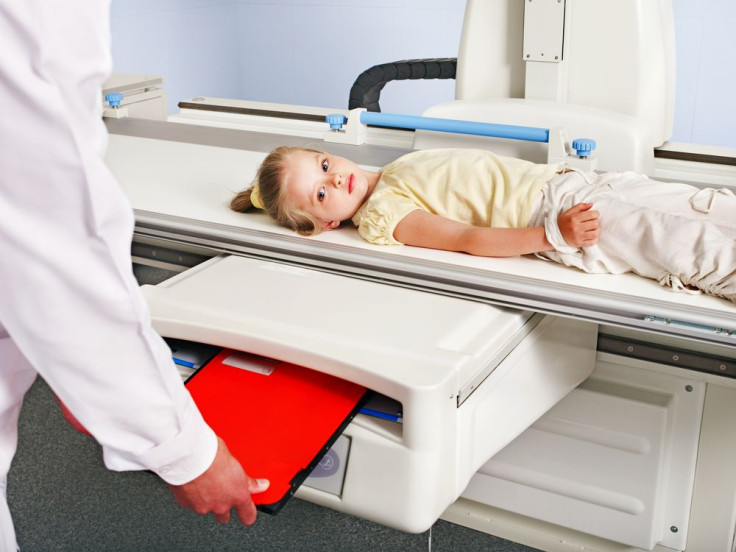Chest X-Rays For Children: Doctors Are Unnecessarily Exposing Kids To Radiation With No Clinical Benefit

There is no way for us to avoid radiation exposure. If you live on earth, you are exposed to radiation. However, that does not mean we should forget about trying to limit our exposure to radiation sources, such as radon in our home, workplace radiation, and X-rays from medical imaging tests. A recent study presented at the annual meeting of the Radiological Society of North America (RSNA) has revealed that doctors are ordering up too many unnecessary chest X-rays for children, which offer no clinical benefit and expose young people to dangerous radiation.
"Chest X-rays can be a valuable exam when ordered for the correct indications," said Dr. Ann Packard, radiologist at the Mayo Clinic in Rochester, Minn., in a statement. "However, there are several indications where pediatric chest X-rays offer no benefit and likely should not be performed to decrease radiation dose and cost."
Packard and her colleagues gathered data from 719 pediatric X-ray exams ordered at the Mayo Clinic’s inpatient, outpatient, and emergency room facilities between 2008 and 2014. X-ray exams were performed on patients ranging in age from newborn to 17, and were ordered for various reasons, including chest pain (377), dizziness (185), fainting (98), postural orthostatic hypotension (37) — also called POTS, it's a condition that causes blood pressure to suddenly drop when going from lying down to sitting — general feeling of being sick or under distress (21), and cyclical vomiting (1).
After discounting 82 exams that were ordered up for symptoms related to heart disease, researchers found that around 88 percent of chest X-rays had no effect on the clinical treatment patients received. Out of 330 X-rays ordered up for chest pain that were not discounted, 39 came up positive for pneumonia, bronchial inflammation, trauma, or another condition. Packard noted that limiting childhood exposure to radiation as well as limiting the cost of unnecessary exams are integral to furthering pediatric medicine.
"Approximately 12 percent of the chest X-rays for chest pain were positive and included respiratory symptoms such as cough, fever, or trauma," Packard added. "There were no positive findings in any chest X-ray for syncope, dizziness, spells, cyclical vomiting, or POTS for the past five years, even in our tertiary care center with referrals for rare diseases or unusual presentations."
According to the American Cancer Society, radiation exposure among children is particularly concerning due to how sensitive their growing bodies are to these harmful rays. While the amount of radiation a single medical test emits can be very small, radiation from all sources tend to add up during a person’s lifetime. Doctors should always weigh the potential benefit of an X-ray or CT scan against the potential risk.
“The best way to protect yourself from excessive radiation from x-rays is to make sure the technician performing the procedure has the proper qualifications, and to simply ask questions,” the Environmental Protection Agency states. “You might inquire about the necessity of having an X-ray, or receive assurance the X-ray machine has been inspected recently and that it is properly calibrated. You should be aware of steps taken to prevent exposures to other parts of your body (for example, through the use of a lead apron).”
Source: Thomas K, Packard A, et al. Many Chest X-rays in Children Are Unnecessary. Annual Meeting of the Radiological Society of North America (RSNA). 2014.



























